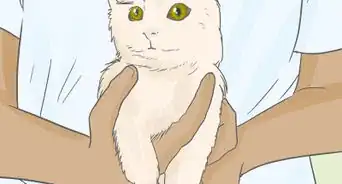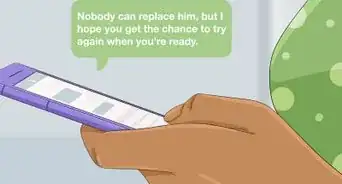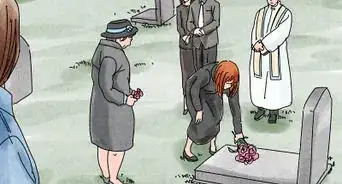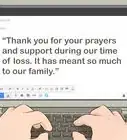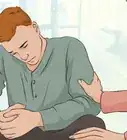This article was co-authored by William Gardner, PsyD. William Gardner, Psy.D. is a Clinical Psychologist in private practice located in San Francisco, CA’s financial district. With over 10 years of clinical experience, Dr. Gardner provides individually tailored psychotherapy for adults using cognitive behavioral techniques, to reduce symptoms and improve overall functioning. Dr. Gardner earned his PsyD from Stanford University in 2009, specializing in evidence-based practices. He then completed a post-doc fellowship at Kaiser Permanente.
This article has been viewed 26,262 times.
Coping with death is hard. It can be even more difficult when trying to deal with the death of a child or teen. Whether you are a schoolmate, a parent, or teacher, there are some effective ways to deal with this awful situation. If one of your schoolmates has died, you can learn how to deal with this shocking news. If you have a child or students who have experienced the death of a classmate, you can learn how to break the news to them. You can also learn how to comfort students and encourage them to grieve and process in a healthy way.
Steps
Coping with the Initial Shock
-
1Acknowledge your emotions. When you learn that a schoolmate has died, you may feel emotional and sad. That is okay. It is normal to feel sad and feel like crying. Alternately, you might feel angry, be in denial, be shocked, or feel nothing or be numb.[1] All of these emotions are perfectly okay.[2]
- Tears are common when something tragic happens, like the death of a schoolmate. Let it out and cry. You’ll probably feel better afterwards.
- You may experience some or all of these emotions as you work through the grieving process.
-
2Talk to someone you trust. Consider talking to someone about what you are feeling. You can talk to your parents, a teacher, school counselor, or your friends.[3]
- Consider seeing a professional counselor or grief counselor. They can help you work through confusing and distressing emotions.
- Talking about the event and your feelings helps you heal and work through your grief.
- For example, say, "I am feeling very sad because John died" or "I'm scared about my own death because John died." You can also say, "I am confused about how I feel because my classmate died."
Advertisement -
3Deal with your fears. Having someone you know who is so close to your age die can be a frightening and confusing experience. Maybe you have not thought that young people could die, so you feel scared. This is okay. Maybe you want to question the concept of death or life. You may ask adults about the nature of death, what happens after death, or what happens to a physical body after death.
- It’s natural to feel scared and think about your own eventual death when someone dies. Talk about these feelings with your parents or teachers.
- If you feel obsessed about your own death or become scared you are going to die, talk to an adult. If you feel uncomfortable talking to your parents, then talk to a teacher or school counselor.
-
4Find some comfort. When you are dealing with traumatic events, try to find some comfort in things that make you happy and feel safe. You might spend time with those closest to you. Spending time with friends and family can help provide comfort when you are scared, sad, or grieving.[4] You might feel safer if you are around people instead of alone.
- If you find comfort in being alone, you can listen to your favorite music, read your favorite book, or watch your favorite movie.
- You may want to spend time with a pet, or curl up with your pet as you listen to music or watch your favorite show.
Moving Forward
-
1Talk about your loss. An important way to move on and heal is to talk about what happened. Talk about the loss of your classmate. It doesn't matter if you were close to the person or not. The death of someone you know is difficult. Talking about the person, your fears, or your feelings can help you start to process and heal.[5]
- When you talk about it, you let more of it out. If the feelings stay inside, you may feel upset or like it's too much. Talking about it lets you get a little bit out each time, which eventually allows you to move on and heal.
- For example, say something like, "I am sad about Sally dying" or "I wish I had known Sally better before she died. That makes me sad."
-
2Reflect on your memories. When a schoolmate dies, think about any good memories you have of the person. Think about interactions you had with your schoolmate. If you didn’t know the person very well, think about what you did know about them, such as remembering them in class, at lunch, or out on the playground.
- Get together with other classmates to talk about the deceased schoolmate. You can talk about memories with each other.
- You can say, "I remember when I played with Jasmine on the playground. We had fun" or "I remember how Jasmine always was the first to answer a question in class."
-
3Return to your usual routine. It's important to get back to your normal day to day life. This includes going to school, participating in activities, and going out with friends. Sitting around and constantly thinking about what happened is not healthy. You need to remember the person who died, but continue on with your life.
- This may be difficult at first. If you need to, start out slowly. Instead of trying to return to everything at once, return to one thing at a time as you move on and get back into your normal routine.
-
4Seek closure. If one of your classmates dies, you may want to say goodbye to them. Consider going to the wake or viewing, or go to the funeral. Some families may have a reception or dinner in honor of the student. Visit the gravesite after the classmate is buried and read them a letter you wrote.
- This can provide closure for you, help you grieve, and allow you to move on.
- If you do not want to attend the funeral, then you might try setting up a memorial for your friend in your home. Find some pictures and keepsakes that remind you of your friend and place them on a table. Then, reflect on the good times you had with the person. You might even try talking to a picture of your friend and saying goodbye to him or her.
-
5Know when to ask for help. You may find that no matter what you do you cannot get over what happened. If this happens to you, talk to your parents or school counselor about getting help.[6] Consider going to see a professional grief counselor or therapist to help you talk about and process what happened.[7]
- You might feel anxious or scared of dying. You may not want to get out of bed or go to school, or you might be unable to go to sleep. If you feel depressed, anxious, or otherwise unable to move on, talk to someone.
- For example, tell someone, "I need some help dealing with this grief" or "I'm not sure how to get over Bob dying. Can you help me?"
Helping Your Children Deal with Death
-
1Encourage your child to talk. When a schoolmate dies, let your child talk about their grief. Let your child control the conversation and explain things they way they understand them. Let them tell their story how they experienced it, and encourage them to talk about how they feel.
- For example, tell your child, "I'm here to listen to whatever you have to say. Tell me what you are going through/thinking/feeling."
- Don’t interrupt or try to give advice. Instead, be a listener while they talk.
- If the child has trouble talking about the event, suggest that they draw pictures or write a story about the schoolmate.
-
2Respect your child's emotions. No two children will react the same to the death of a classmate. Some kids will be sad and cry, some may get aggressive or angry, and other may withdraw.[8] Some children will feel intense fear and feel anxiety or have panic about dying or loved ones dying. All of these reactions are perfectly normal.
- Some students may be distracted, their grades may slip, and they may have difficulties concentrating.
- Be supportive of these emotions and help the child express them in healthy ways.
- However, watch them to make sure their emotions don’t get out of control. If the child is being overly aggressive, fearful, sad, or withdrawn, talk to them or take them to see a professional.
- For example, say, "I understand you are hurting/this is scary/this is difficult, but acting out and being aggressive is not a good way to deal with this. Would you please tell me what happened?"
-
3Listen to your child. It is important to give your child a chance to talk about his or her feelings. Let your child know that you are willing to listen whenever he or she wants to talk. Some things you can do to be a good listener for your child include:[9]
- Removing distractions such as by shutting off the TV, putting away your phone, or closing your laptop.
- Nodding and making neutral statements to show that you are listening. For example, you can say things like “yes,” “go on,” and “uh-huh.”
- Asking probing questions to get your child to talk more. For example you might ask things like, “How does this make you feel?” or “Why do you think it is affecting you this way?”
-
4Offer suggestions for dealing with emotions in a healthy way. Your child may be having a hard time figuring out how to express the things he or she is feeling. One way that you can help is to suggest healthy ways for your child to express his or her feelings.
- Try teaching your children how to identify and accept their emotions. For example, if your child is feeling angry, then you might help your child to notice that emotion and acknowledge it. Teach your child to say something like, “Right now I am feeling anger because of my classmate’s death. I have a right to feel anger, but I can choose to express it in healthy ways.”[10]
- For a younger child, you might encourage him or her to draw pictures to represent how he or she is feeling. Try asking your child to draw a picture of how he or she feels and then discuss the picture with your child.
-
5Allow the child time to grieve. You never want to see children or teens hurting. However, experiencing the death of a schoolmate, especially if the kid was close to the deceased child, can take time to process. No one deals with grief in the same way, so some children will grieve and move on faster than others.
- Don’t try to make the child or teen move on or get better before they are ready. Instead, let the child grieve at their own pace and work through their grief.
- One of the most important things you can do is to be patient. Grieving takes time. Some children may grieve and process faster than others. Some may be delayed in their feelings and feel emotion later. Don’t try to force the child to get better faster than they are.
-
6Be honest. You may feel you need to protect the child or teen by lying to them or not telling them the whole truth. Resist the urge to sugarcoat what happened to the deceased schoolmate to try and lessen the impact. Children can pick up when you are lying, and teens will find out what happened anyway. Be honest with the child about what happened.
- Some details may be omitted depending on the age of the child. For example, if the child died by suicide refrain from sharing that or the details on how they killed themselves. If the child died via murder, do not want to share all that the police found. However, helping them understand and deal with death can help them learn coping strategies for the future.
- For example, tell your child, "Heather died in car wreck last night" or "Heather died this morning."
- Try not to use euphemisms, like "Heather went to a better place" or "Heather passed away." Don't beat around the bush by saying things like, "Heather is no longer with us." Instead, be direct.
-
7Help the child understand death. The death of the child’s schoolmate may be their first exposure of death, or their first exposure to the death of a young person. They may have a lot of questions, such as “why” and “what happens when someone dies?” Try to be willing to talk about these issues with your child.
- Children may want to know about physical changes that happen to a dead body. They may also want to know what happens to a person after they die. Talk about these issues within any religious frameworks that you believe.
- Help children understand that death is a normal part of life.
- For example, say, "Death will happen to everyone. It happens at different ages and suddenly. The truth is that we never know when we, or our close ones, will die." Another thing you can say is, "Though it seems unfair, even young people die. It is not common, but tragedies like car accidents happen."
- Help the child cope with death by having them read books about death. Many books have been published that give information about death. They also help put death and grieving into terms children can understand.
-
8Notice the warning signs. Try to be patient while the child grieves and heals, but also be aware of any warning signs so you can get help for your child if you think he or she needs it. Some things you can watch for include:[11]
- Inability sleeping
- Not eating or overeating
- Withdrawing from family and friends
- Severe academic problems or not wanting to go to school
- Abnormal aggression
- Apathy
- Obsession with death
Supporting Your Students
-
1Discuss the event with the affected classes. When a schoolmate dies, a teacher, counselor, or administrator may want to first break the news to the deceased student’s class or classes. The students in the schoolmate’s class will feel the most impact from the death. Make sure to be direct, and use simple, straight-forward sentences when talking about the event.
- For example, tell the class, "Our school has experienced a tragedy. Jake has died in a car accident." Don't go around in circles or try to lessen the impact with metaphors or fluffy language.
- Be prepared for questions about the event. Make sure the school staff has all the facts straight and is aware of what is going to be shared.
- Let the parents know when you are going to talk to the classes. They may want to be present with their children.
-
2Give the students positive ways to channel their grief. Help the students work through their grief by helping them channel their feelings into positive actions. This can help give the child or teen closure and help them come to a place where they can move on.
- For example, let the children release balloons, plant trees, collect money for a bench, or make a memory book for the deceased classmate’s family.
- Organize a school activities that help the community in honor of the deceased schoolmate. Have a bake sale to raise money for charity and donate it in honor of the child.
-
3Be available to students. When a student dies, it affects the entire school. The students may not know they can be open with their feelings. Try to foster an environment of acceptance where students feel safe expressing their feelings and asking questions. Talk honestly about your feelings so your students may decide to open up about their own feelings and address their grief.
- Tell your students, "If anyone would like to talk in a safe environment where you won't be judged, feel free to come talk to me."
- Be around for the students in case they need to talk. They may not feel safe talking to parents, so provide an open, safe environment for them to talk about their feelings, confusion, and questions. It will also be important to have counselors on hand to talk with parents and students. Depending on the situation, more counselors may need to be brought in to help the students, teachers, and parents to cope with the loss.
Expert Q&A
-
QuestionHow long does it take to get over someone's death?
 William Gardner, PsyDWilliam Gardner, Psy.D. is a Clinical Psychologist in private practice located in San Francisco, CA’s financial district. With over 10 years of clinical experience, Dr. Gardner provides individually tailored psychotherapy for adults using cognitive behavioral techniques, to reduce symptoms and improve overall functioning. Dr. Gardner earned his PsyD from Stanford University in 2009, specializing in evidence-based practices. He then completed a post-doc fellowship at Kaiser Permanente.
William Gardner, PsyDWilliam Gardner, Psy.D. is a Clinical Psychologist in private practice located in San Francisco, CA’s financial district. With over 10 years of clinical experience, Dr. Gardner provides individually tailored psychotherapy for adults using cognitive behavioral techniques, to reduce symptoms and improve overall functioning. Dr. Gardner earned his PsyD from Stanford University in 2009, specializing in evidence-based practices. He then completed a post-doc fellowship at Kaiser Permanente.
Clinical Psychologist It's going to take everyone a different amount of time, so don't feel bad if it's taking you shorter or longer. Usually though, it will take around a month or so.
It's going to take everyone a different amount of time, so don't feel bad if it's taking you shorter or longer. Usually though, it will take around a month or so.
References
- ↑ William Gardner, PsyD. Clinical Psychologist. Expert Interview. 25 July 2019.
- ↑ http://www.hellogrief.org/what-happens-after-the-sudden-death-of-a-friend-or-classmate/
- ↑ http://www.hellogrief.org/what-happens-after-the-sudden-death-of-a-friend-or-classmate/
- ↑ William Gardner, PsyD. Clinical Psychologist. Expert Interview. 25 July 2019.
- ↑ http://www.hellogrief.org/what-happens-after-the-sudden-death-of-a-friend-or-classmate/
- ↑ William Gardner, PsyD. Clinical Psychologist. Expert Interview. 25 July 2019.
- ↑ http://www.parents.com/parenting/better-parenting/advice/what-to-do-when-a-childs-friend-dies/
- ↑ William Gardner, PsyD. Clinical Psychologist. Expert Interview. 25 July 2019.
- ↑ http://psychcentral.com/lib/become-a-better-listener-active-listening/
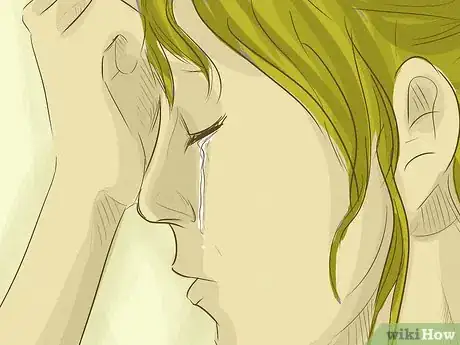



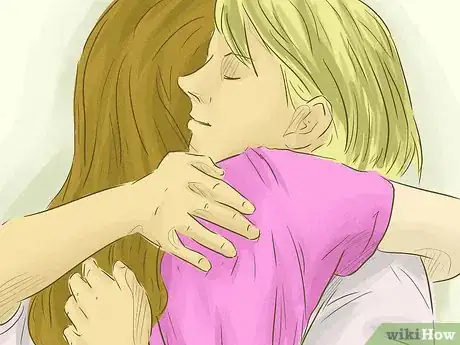

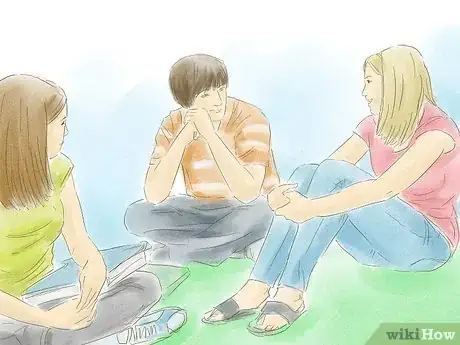
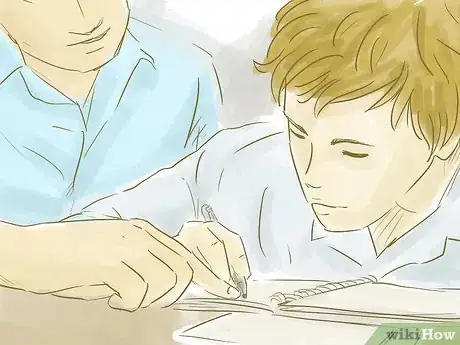
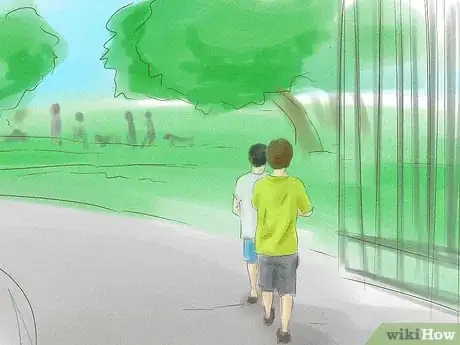

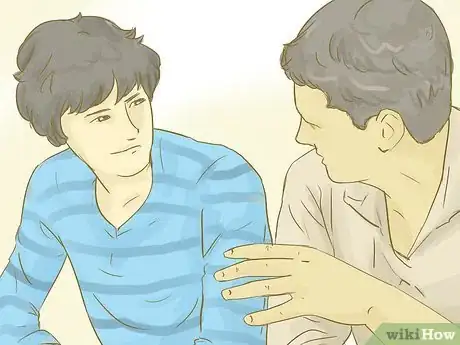
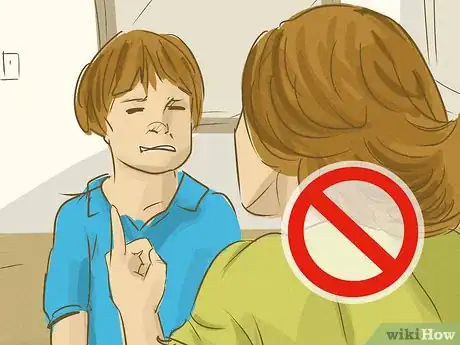
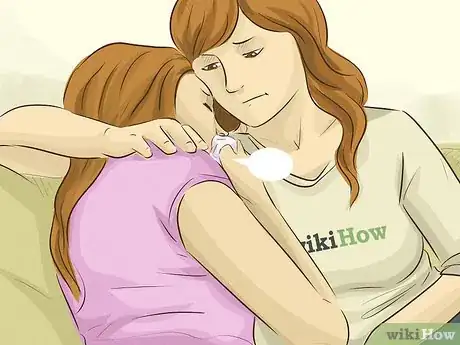

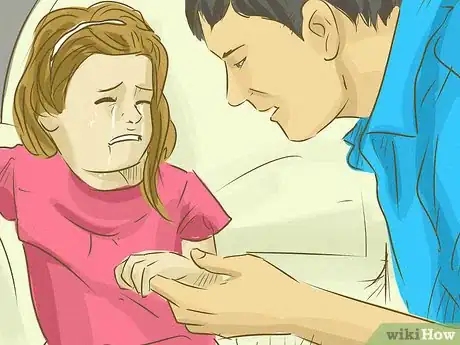
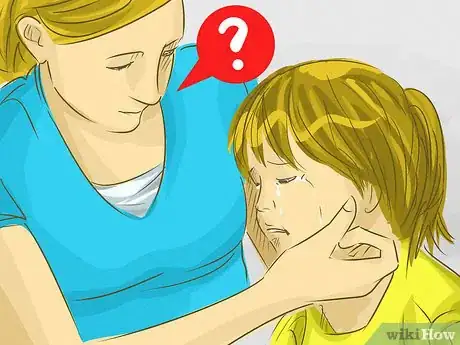



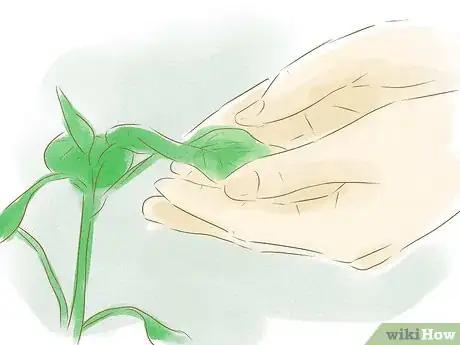
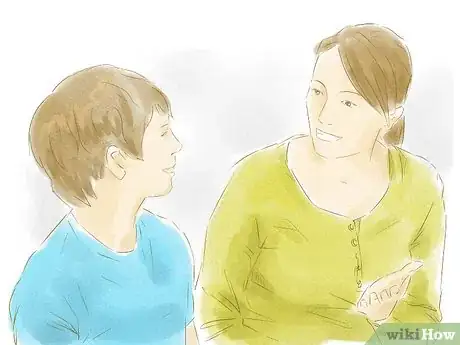
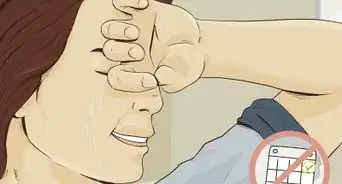
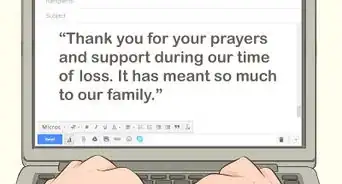


-Step-20-Version-2.webp)

